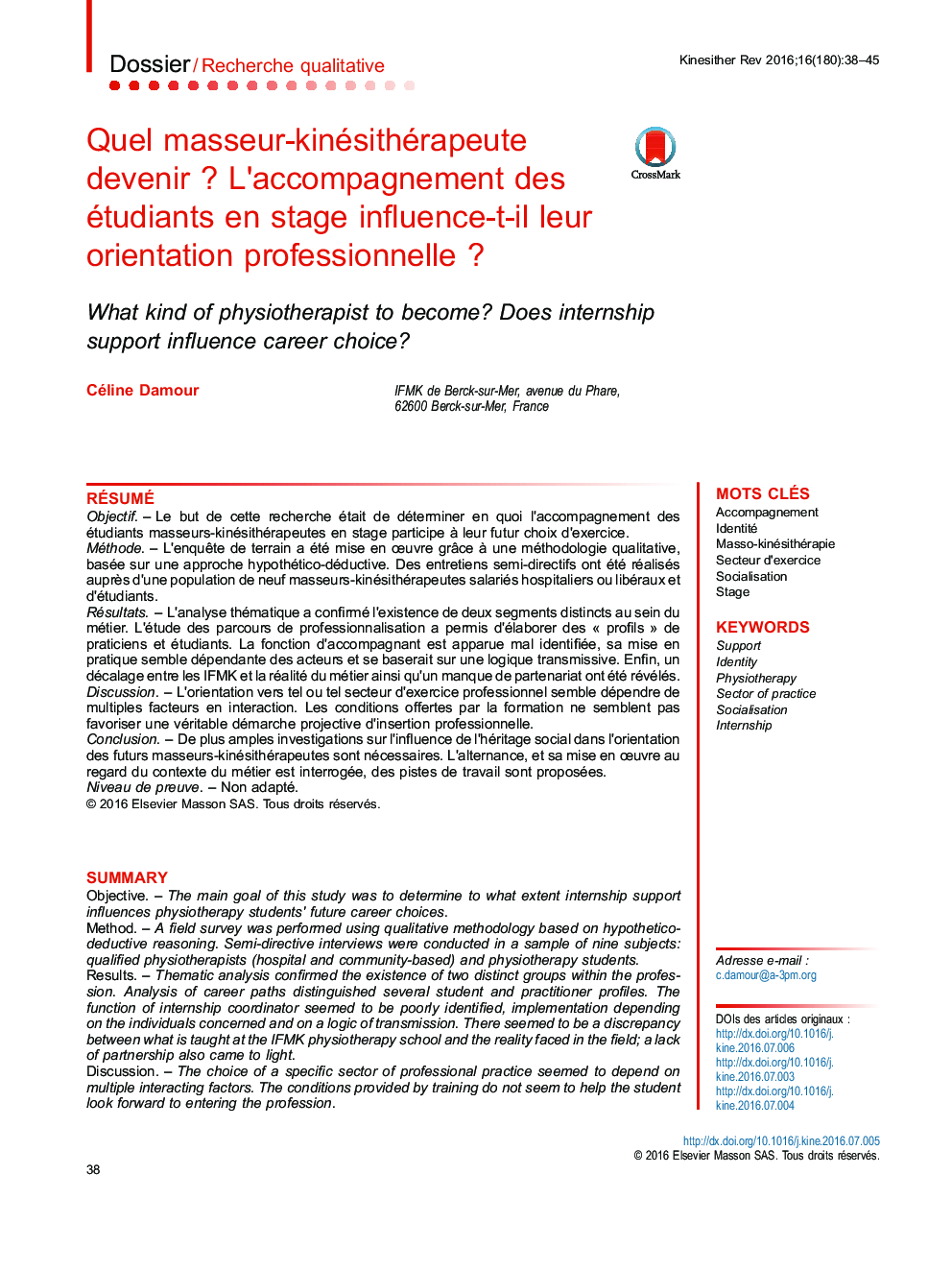| Article ID | Journal | Published Year | Pages | File Type |
|---|---|---|---|---|
| 5564666 | Kinésithérapie, la Revue | 2016 | 8 Pages |
RésuméObjectifLe but de cette recherche était de déterminer en quoi l'accompagnement des étudiants masseurs-kinésithérapeutes en stage participe à leur futur choix d'exercice.MéthodeL'enquête de terrain a été mise en Åuvre grâce à une méthodologie qualitative, basée sur une approche hypothético-déductive. Des entretiens semi-directifs ont été réalisés auprès d'une population de neuf masseurs-kinésithérapeutes salariés hospitaliers ou libéraux et d'étudiants.RésultatsL'analyse thématique a confirmé l'existence de deux segments distincts au sein du métier. L'étude des parcours de professionnalisation a permis d'élaborer des « profils » de praticiens et étudiants. La fonction d'accompagnant est apparue mal identifiée, sa mise en pratique semble dépendante des acteurs et se baserait sur une logique transmissive. Enfin, un décalage entre les IFMK et la réalité du métier ainsi qu'un manque de partenariat ont été révélés.DiscussionL'orientation vers tel ou tel secteur d'exercice professionnel semble dépendre de multiples facteurs en interaction. Les conditions offertes par la formation ne semblent pas favoriser une véritable démarche projective d'insertion professionnelle.ConclusionDe plus amples investigations sur l'influence de l'héritage social dans l'orientation des futurs masseurs-kinésithérapeutes sont nécessaires. L'alternance, et sa mise en Åuvre au regard du contexte du métier est interrogée, des pistes de travail sont proposées.Niveau de preuveNon adapté.
SummaryObjectiveThe main goal of this study was to determine to what extent internship support influences physiotherapy students' future career choices.MethodA field survey was performed using qualitative methodology based on hypothetico-deductive reasoning. Semi-directive interviews were conducted in a sample of nine subjects: qualified physiotherapists (hospital and community-based) and physiotherapy students.ResultsThematic analysis confirmed the existence of two distinct groups within the profession. Analysis of career paths distinguished several student and practitioner profiles. The function of internship coordinator seemed to be poorly identified, implementation depending on the individuals concerned and on a logic of transmission. There seemed to be a discrepancy between what is taught at the IFMK physiotherapy school and the reality faced in the field; a lack of partnership also came to light.DiscussionThe choice of a specific sector of professional practice seemed to depend on multiple interacting factors. The conditions provided by training do not seem to help the student look forward to entering the profession.ConclusionFurther investigations of the influence of social background on the choices of would-be physiotherapists are needed. Implementing internships in the working environment is discussed and research perspectives are suggested.Level of evidence Not applicable.
